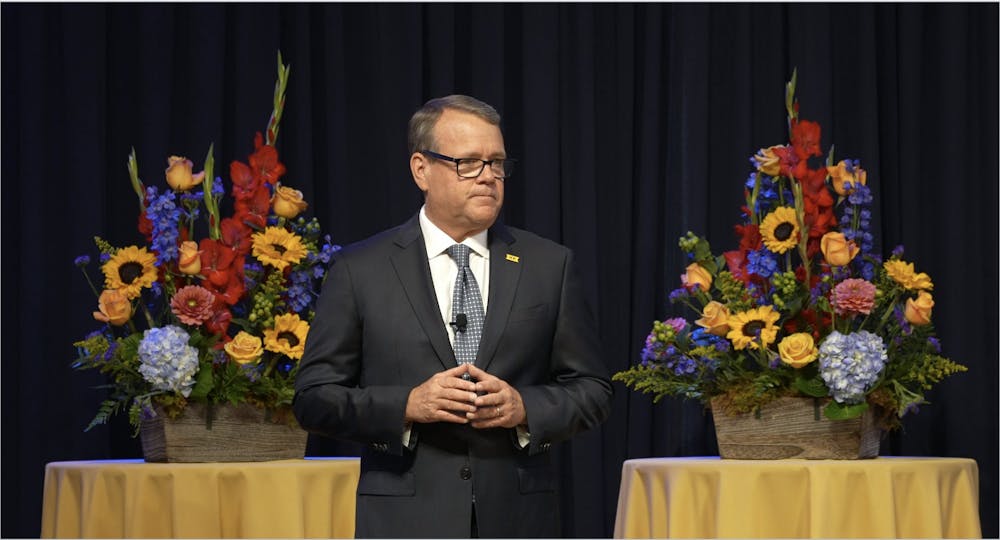Walking up on the stage, a man in a sharp black suit and a gray foulard tie passes by an audience full of people, each person eagerly waiting for him to speak.
He cups his hands together and asks the crowd a simple phrase:

“Good afternoon, Bears, how are we all doing out there?” asks Andy Feinstein, president of the University of Northern Colorado.
The room explodes in cheers and applause.
Held on Sept. 23, the State of the University Address is an annual event held on the campus, and offers a valuable opportunity for President Feinstein to share his plans and his vision for the coming year.
He opened this year’s speech with an anecdote from his summer. Feinstein and his wife hiked the last 14,000-foot-tall mountain on his list, Mount Sneffels. It reminded him of his son, Nick Feinstein, who passed away in 2023 during an avalanche outside of Breckenridge.
However, most importantly, he said it reminded him about maintaining purpose and to keep moving forward.
“It is something we can carry forward at UNC, we are not here to drift,” Feinstein said.

This is a reference to the aptly named “Rowing, Not Drifting 2030” plan for the university as a whole, which started being implemented about 5 years ago.
“We are right now at the midway point of Rowing Not Drifting, and the progress we’ve made together is truly remarkable,” Feinstein said.
There is an emphasis on “student first” practices going into the 2025-2026 year, with major developments in unifying Academic and Student Affairs under one office.
A new vice provost and a new vice president of student affairs joined the UNC staff this year. According to Feinstein, these new hires are building a foundation to further support students through graduation and beyond.
With rising university costs and financial aid wavering, the future of higher education is uncertain for many seeking higher education.
But at UNC, the numbers have been steadily climbing, according to Feinstein.
“They reflect not only progress in student retention, but also unprecedented gains for historically underrepresented students,” Feinstein said. “These are important steps towards closing equity gaps, which has long been one of UNC’s goals.”
This is all a part of the “Rowing, Not Drifting 2030” Phase III, a plan to deepen student engagement.
With such big plans comes a hefty price tag. Projects like the College of Osteopathic Medicine cost nearly $200 million on its own. Feinstein is aware of the budget issues the university is facing.
“Last year we paused filling vacant positions and are continuing to review every hiring request, carefully ensuring they align with our strategic priorities,” Feinstein said. “Combined with discipline spending, this is helping us manage the projected shortfall through the end of the fiscal year.”
Cody Field, a senior studying psychology at UNC, feels strongly about some of the financial choices made recently.
“Everything feels unstable right now,” Field said. “None of my professors feels stable in their jobs, and with that being reinforced by nobody being able to find jobs off campus, everything seems uneasy.”
Feinstein understands the impact of the spending cuts and is actively working toward a solution that benefits everyone involved.
“We recognize the weight of that responsibility,” Feinstein said. “We solicit input, weigh every option and keep one goal in mind. Protecting the future of this university.”






